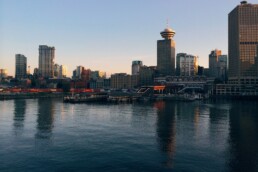Immigrants in B.C. Still Have a Chance to Receive Legal Aid with A Refugee Lawyer Thanks to Additional Government Funding
As the number of asylum seekers coming to Canada continues to grow, Canadian legal aid programs for immigrants and refugees are struggling to meet the growing demand for legal assistance. For some time now, these programs have been at risk of shutting down due to a lack of government funding. Without legal aid from an immigration and refugee lawyer, many asylum seekers may face deportation because they cannot adequately represent themselves in front of the Immigration and Refugee Board.
Up until recently, the Legal Aid British Columbia planned to halt legal aid applications for immigrant and refugee cases due to a lack of government funding. The cut-off date was set for August 1st, 2017. But with a last-minute additional funding from the federal Department of Justice, B.C. can continue to provide legal aid to immigrants and refugees until November of this year.
The legal aid system in Canada connects eligible immigrants and refugees with private lawyers. Both the provincial and federal governments fund legal aid services for each province. Legal Aid Ontario also announced that it would have to stop its services for immigrants and refugees by November of this year if additional government funding does not flow through.
The reality is that funding for legal aid in Canada is not keeping up with the influx of refugee claims. The number of asylum seekers coming to Canada has increased significantly this year. The political climate in the U.S. has been driving more asylum seekers to Canada, and there will likely be a steady flow of asylum claims for some time. The Canadian legal aid programs hope for more government funding over the next few years to meet current and growing demands, while the Canadian government is looking for solutions to handle the influx of refugee claims.
Canada needs to address the demands arising by this influx, especially regarding essential funding for legal representation. It would be procedurally unfair for asylum seekers who cannot afford legal assistance to represent themselves at their refugee claims hearings. These claimants are most often unfamiliar with the process, the law, and their legal rights. In addition, they face language barriers and other vulnerabilities. There are serious consequences arising from a negative refugee decision for their families including deportation to a country where they may face risk and persecution.
Both the immigration system and claimants benefit from working with a refugee lawyer. Some of these benefits include:
- Efficient preparation of refugee claim applications, including the proper drafting of the Basis of Claim form question and Narratives;
- Effective preparation of personal and documentary evidence in support of the person’s claim;
- Preparation of client and witnesses for their refugee hearing;
- Enhanced procedural fairness particularly for vulnerable claimants;
- Higher chances of a positive outcome at refugee hearings.
Additional funding for immigration and refugee legal aid services is essential to support the Canadian government’s open immigration policy. Canada should ensure that legal aid remains a priority and policy makers devote the necessary resources to provide access to justice. It is unacceptable for individuals who have fled war and persecution, and risk to their lives to make their way to Canada only to be unable to adequately present their case and have a fair chance at their refugee hearing.
Share this article
Arghavan Gerami
Arghavan Gerami is the Founder and Senior Counsel at Gerami Law Professional Corporation ('PC'), a full-service immigration law firm in Ottawa, Ontario. Since 2011, Ms. Gerami has focused her practice on immigration and refugee litigation. Prior to that, Ms. Gerami worked at the Ministry of Attorney General and the Department of Justice and had the privilege of serving the Honourable Mr. Justice M. Evans at the Federal Court of Appeal on immigration and administrative law appeals. Ms. Gerami contributes to the Immigration Law Section of the Canadian Bar Association, the Canadian Association of Refugee Lawyers, and the United Nations High Commissioner for Refugees. Ms. Gerami has also published numerous journal articles and presented at various immigration and refugee law conferences and events across Canada.

